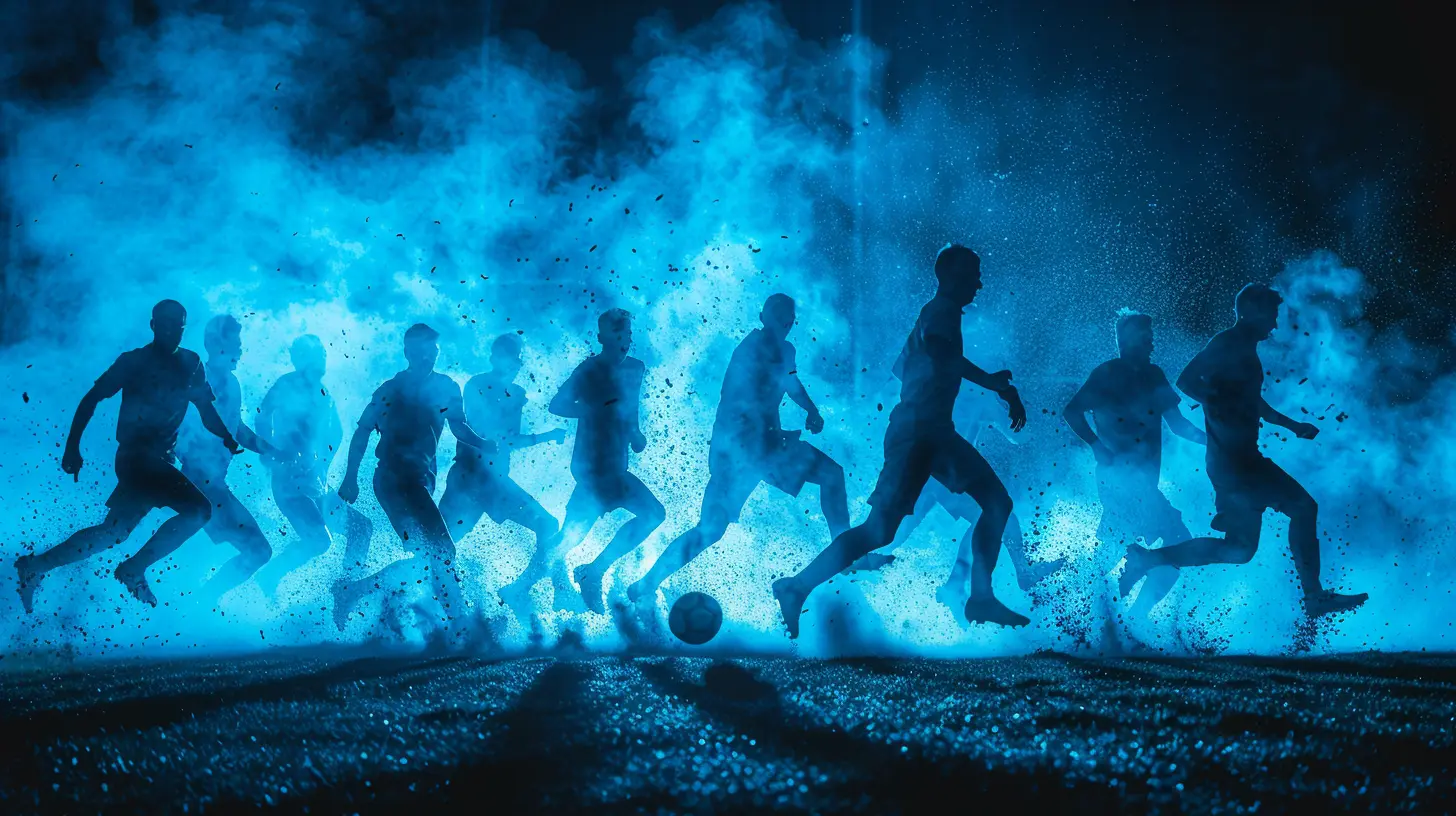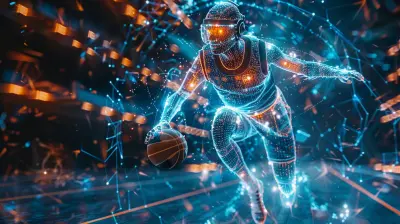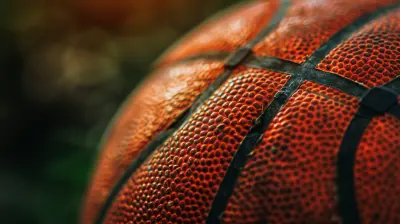Mastering Team Chemistry: The Key to Winning in Any Sport
12 June 2025
Ever watched a team that just clicks? They move with purpose, anticipate each other’s actions, and seem to know where everyone is on the field—without looking. That, my friend, is team chemistry, and it’s the not-so-secret sauce behind every great sports team’s success.
In this article, we're diving deep into what makes team chemistry so crucial, how you can build it from the ground up, and why even the most talented players can’t go far without it. Whether you're a coach, a player, or just a sports junkie, get ready—because we're unlocking the real game-changer behind those championship banners.
What Is Team Chemistry, Really?
Team chemistry isn’t just a buzzword tossed around in locker rooms or press conferences. It’s a dynamic, ever-evolving relationship between teammates that fuels communication, trust, and unity on and off the field.Imagine trying to run a relay race with four sprinters who have no idea how to pass the baton. No matter how fast each one is individually, that race is doomed. Why? Because chemistry—the ability to sync, trust, and complement each other—just ain't there.
In sports, chemistry is that unspoken connection. It’s about reading the game the same way, covering for each other’s weaknesses, and putting ego aside to play for the team, not just yourself.
Why Team Chemistry Beats Talent (Almost Every Time)
Let’s be real. Talent alone doesn’t win games. Sure, it helps—but talent without cohesion? That’s like having premium gas with no engine. You’re not going anywhere.Think about all the “super teams” in sports history. They had the all-stars, the MVPs, the firepower. But some of them still crashed and burned. Why? Because without chemistry, players are just individuals in the same jersey—not a team.
On the flip side, we've seen underdog teams go all the way because they played for each other. The hustle, the heart, the unity—they had it in spades. And that made the difference.
The Building Blocks of Killer Team Chemistry
You can’t fake chemistry. But you can build it—with effort, intention, and a bit of patience.1. Trust: The Foundation of Everything
No trust? No team. It’s that simple. Players need to believe in each other’s abilities and decision-making. When a teammate calls for the ball, you pass it—not because the playbook says so, but because you trust they’ll make something happen.And it’s not just about trusting skills. It’s trusting that your teammate has your back—win or lose.
2. Communication: Talk the Talk, Play the Game
Ever seen two defenders run into each other going for the same ball? Lack of communication. On-field chatter—whether it's calling for a pass or giving a heads-up about a screen—keeps everyone in sync.But communication goes beyond talking. It's about listening, too. Great teams know when to speak up and when to tune in.
3. Shared Goals: One Vision, One Mission
Chemistry thrives when everyone’s rowing in the same direction. When teammates share goals—winning the championship, making playoffs, or just improving game by game—everything falls into place.When personal ambition takes a back seat to the team’s mission, magic happens.
4. Accountability: Owning Mistakes and Moving Forward
No one’s perfect. But can your teammates admit when they’ve messed up? Can they take criticism without folding?Accountability creates a culture of growth, not blame. And when mistakes are viewed as lessons, not liabilities, chemistry strengthens.
5. Time Together: Camaraderie Builds Chemistry
Trust isn’t built overnight—it’s built over shared experiences. Team dinners, road trips, off-day hangouts—they all matter. The more players bond off the field, the more in sync they become on it.Think of it as charging the battery of trust and connection.
Coaching Chemistry: The Coach’s Role in Team Dynamics
Let’s not forget the maestro in all of this—the coach. Coaches aren’t just there to draw up plays; they’re the culture architects.A great coach fosters trust, resolves conflicts, and sets the tone for how players interact. They sniff out tension before it explodes and know when to push or pull back.
Here’s how coaches can build chemistry like pros:
- Model Unity: Lead by example. Treat everyone fairly, promote team-first mentality, and celebrate collective success.
- Mix It Up: Rotate players in practice, encourage different pairings, and get the team used to each other’s styles.
- Facilitate Feedback: Create spaces where players can speak openly—constructively, of course.
- Recognize Roles: Every player matters. From the superstar to the sixth man, everyone deserves to feel valued.
Cracking the Code: Case Studies in Team Chemistry
Let’s spotlight a few real-world examples where team chemistry made all the difference.Golden State Warriors (2014–Present)
Sure, they’ve got talent. But what separates the Warriors from other NBA dynasties is their selfless culture. Steph Curry’s unshakeable humility, Draymond Green’s vocal leadership, and Steve Kerr’s player-first coaching style created a system where egos took a backseat—and trophies piled up.Their ball movement, unselfish play, and joyful intensity? That’s chemistry in motion.
Leicester City (2015–16 Premier League Season)
Talk about an underdog story! Leicester City wasn’t loaded with superstars, but their unity, belief, and team-first mentality shocked the world. They won the Premier League against 5000-to-1 odds. Every player bought in, knew their role, and trusted the system.That wasn’t luck—just pure chemistry and heart.
U.S. Women’s National Soccer Team
This powerhouse didn’t just dominate thanks to raw skill. Their bond off the pitch—built through shared struggles, respect, and resilience—translated into relentless, cohesive performances on it. They played for each other, not just for the win.The Ugly Side: When Chemistry Breaks Down
It’s not all sunshine and high-fives. Teams can unravel just as quickly if chemistry takes a hit.Ego clashes, miscommunication, favoritism, and unchecked conflicts can poison the locker room. Once the trust bubble bursts, rebuilding it takes serious time and intention.
Even one toxic presence can tilt the balance. That’s why leaders—both coaches and players—must actively protect the team culture.
How Athletes Can Level Up Team Chemistry
If you’re a player reading this, know that chemistry isn’t just the coach’s job. Here’s how you can help build that winning bond:- Lead with humility: No one likes a show-off or a ball hog. Share the spotlight.
- Encourage others: A simple “Nice pass!” can boost morale big time.
- Squash drama: Be the peacemaker, not the instigator. No team has time for petty drama.
- Stay positive: Body language matters. Bad vibes are contagious—so are good ones.
- Own your role: Even if you're not the star, you’re still a vital piece of the puzzle.
Chemistry Isn’t Just For the Pros
You might be thinking, “Cool story, but I’m just playing in my local basketball league.” Doesn’t matter. Chemistry is just as important in pick-up games, rec leagues, and school teams as it is in the big leagues.Why? Because when everyone’s on the same page—even in casual games—it’s more fun, more fluid, and yeah, you win more.
Plus, forming tight-knit connections through sports can lead to lifelong friendships and unforgettable memories. Wins come and go, but team bonds? Those stick.
Final Whistle: Bring It All Together
Here’s the truth—mastering team chemistry isn’t about flashy plays or superstar signings. It’s about building trust, communicating with purpose, and putting the team above self. It’s not instant—it’s earned. But once it clicks, it’s unstoppable.Whether you’re coaching a youth squad, leading a college team, or suiting up for Sunday league, remember this:
Talent sets the stage. But chemistry wins the game.
So, what are you doing to build better chemistry with your team?
all images in this post were generated using AI tools
Category:
Team SportsAuthor:

Ruben McCloud
Discussion
rate this article
2 comments
Uma Soto
Absolutely loved this article! 💪 Team chemistry truly makes all the difference in any sport. When players connect, magic happens on the field! Here’s to teamwork and unforgettable victories together! 🏆🎉
June 15, 2025 at 10:40 AM

Ruben McCloud
Thank you for your support! I completely agree—team chemistry is vital for achieving greatness on the field! 🏆✨
Otto McNulty
Team chemistry isn't just an advantage; it's the foundation of greatness. When players harmonize their strengths and support each other, magic happens on the field. Embrace collaboration, build trust, and watch your team rise to unstoppable heights!
June 14, 2025 at 2:38 AM

Ruben McCloud
Thank you for your insightful comment! I completely agree—team chemistry truly is the cornerstone of success in sports. Emphasizing collaboration and trust can elevate any team to greatness.


